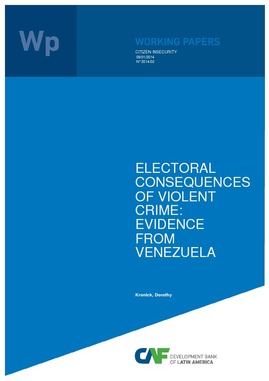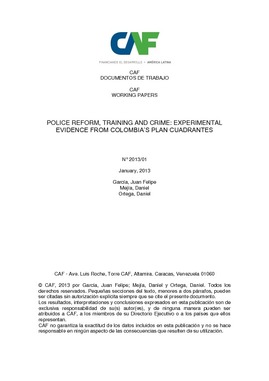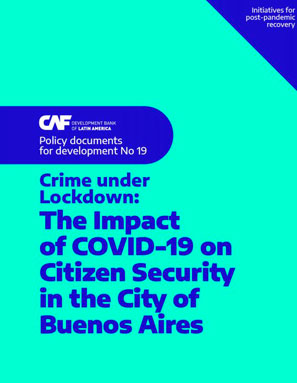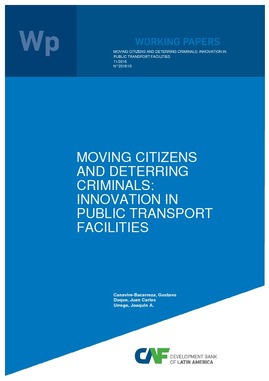Mostrar el registro sencillo del ítem
Electoral Consequences of Violent Crime: Evidence from Venezuela
| dc.contributor.author | Kronick, Dorothy | |
| dc.coverage.spatial | Venezuela | en_US |
| dc.date.accessioned | 2015-02-11T00:20:41Z | |
| dc.date.available | 2015-02-11T00:20:41Z | |
| dc.date.issued | 2014-05 | |
| dc.identifier.citation | Kronick, D. (2014, May). Electoral Consequences of Violent Crime: Evidence from Venezuela. CAF. Retrieved from https://scioteca.caf.com/handle/123456789/687 | en_GB |
| dc.identifier.uri | https://scioteca.caf.com/handle/123456789/687 | |
| dc.description.tableofcontents | To what extent to do voters hold political incumbents accountable for policy outcomes? This paper considers retrospective voting in the context of violent crime. Using a novel panel data set on county -and neighborhood- level homicide incidence and vote shares in Venezuela, I nd that, relative to other policy outcomes such as cash transfers, voters are generally unresponsive to changes in homicide incidence. However, responsiveness varies with the type of election and with the nature of local crime control institutions (which change within municipality over time). Noting the role of external shocks (for example, from drug enforcement activities in neighboring Colombia) in producing violence in Venezuela, I interpret these results as evidence that voters (correctly) view homicide outcomes as weak signals of incumbent political quality. Theresults are therefore consistent with rational retrospective models of voting behavior. | EN |
| dc.language.iso | en | en_US |
| dc.publisher | CAF | en_US |
| dc.rights | CC-BY-NC | es_ES |
| dc.rights.uri | http://creativecommons.org/licenses/by-nc/4.0/ | es_ES |
| dc.subject | Seguridad ciudadana | en_US |
| dc.subject | Seguridad | en_US |
| dc.subject | Investigación socioeconómica | en_US |
| dc.title | Electoral Consequences of Violent Crime: Evidence from Venezuela | en_US |
| dc.type | workingPaper | en_US |
Ficheros en el ítem
Este ítem aparece en la(s) siguiente(s) colección(ones)
-
6.1 Documentos de trabajo en investigación socioeconómica
En esta colección se encuentran los documentos de trabajo sobre temas económicos y sociales prioritarios para la región.






